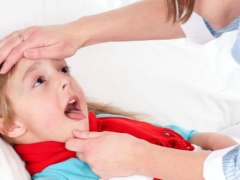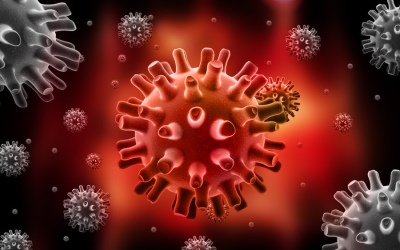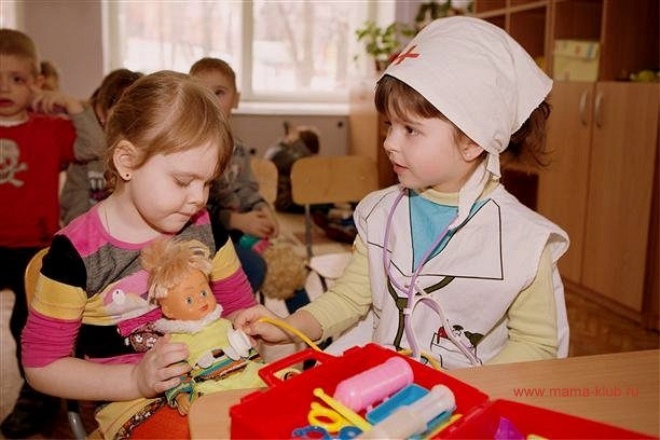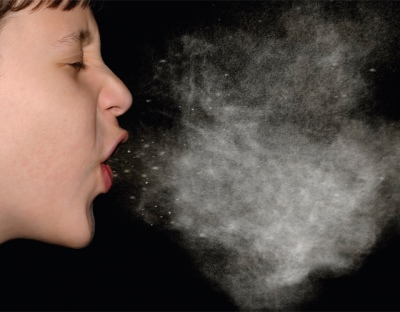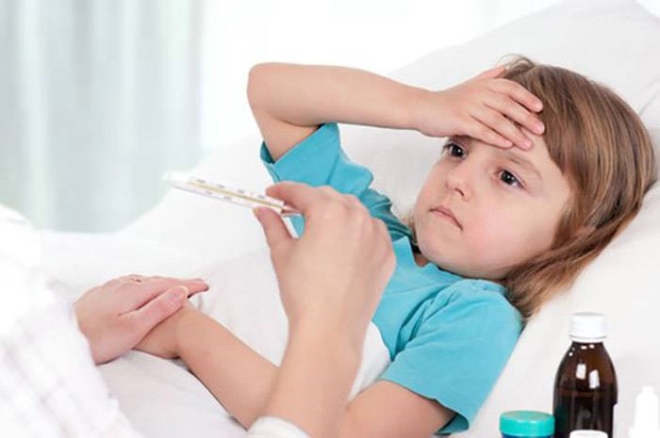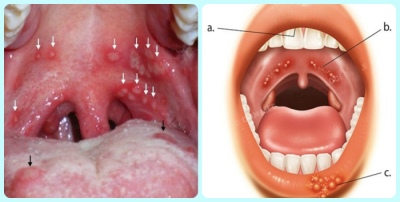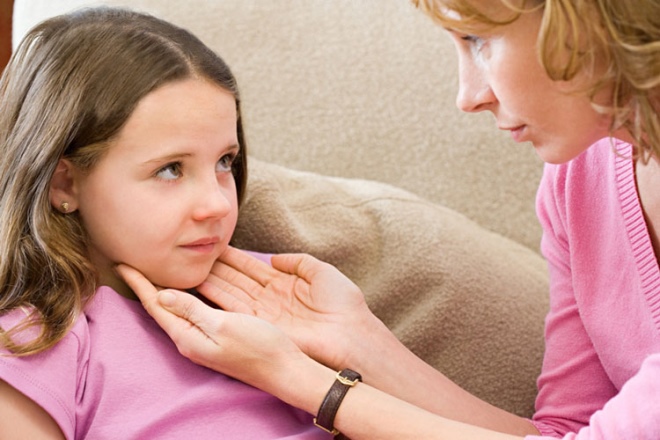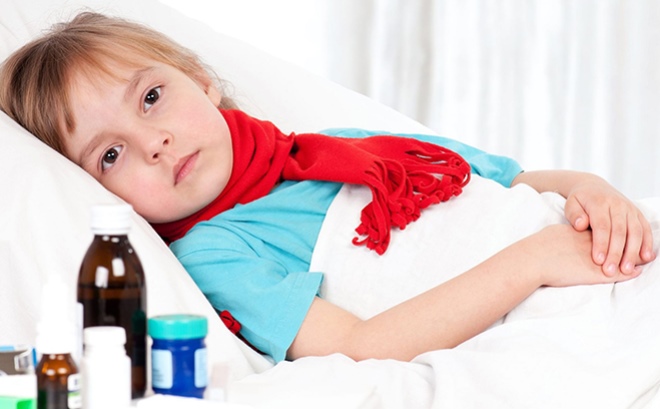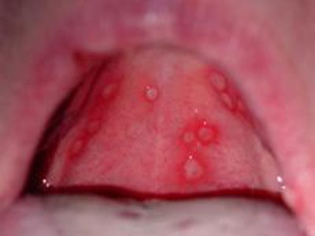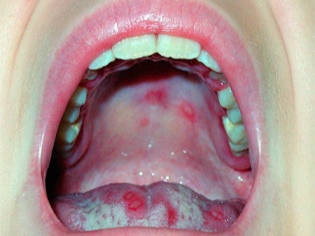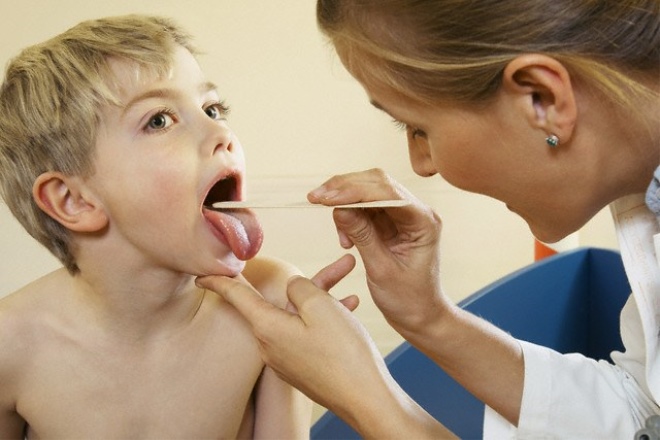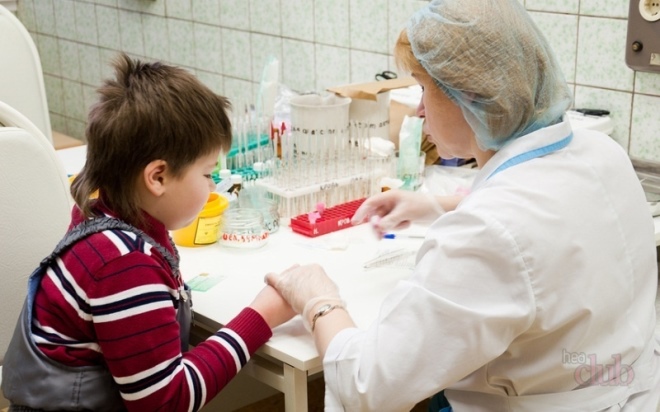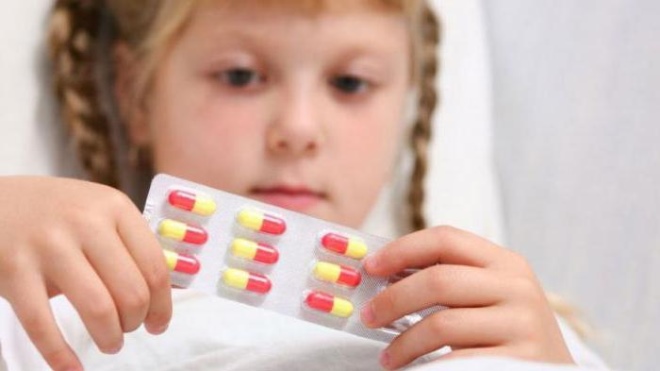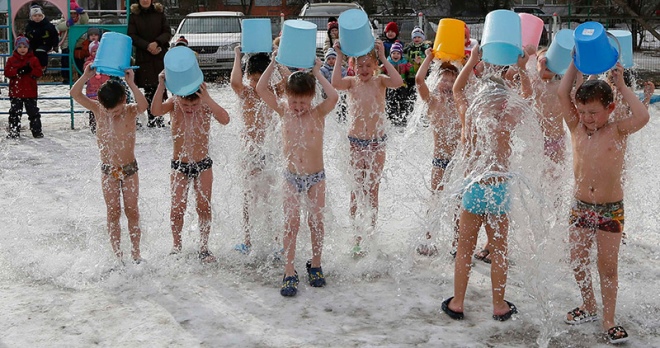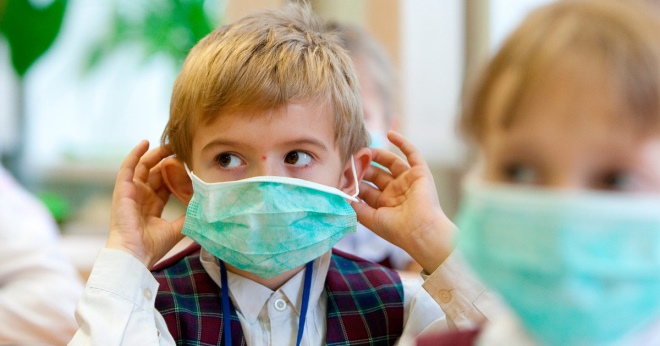Herpes sore throat in children
Herpes infection is accompanied by the appearance of many adverse symptoms. Kids can get sick at any age. Without adequate treatment, dangerous complications are likely.
The reasons
Severe inflammation of the tonsils caused by herpes virus infection is called herpes sore throat. The disease is caused by a virus belonging to the herpes species. These microbes are characterized by high volatility and excellent survival even in the most adverse environmental conditions. They easily fall on the mucous membranes and contribute to the death of epithelial cells (necrosis).
There is a sufficiently large number of different subspecies of herpes viruses. Infection can be caused by simple herpes simplex virus type 1 or 2, as well as Coxsackie virus or ECHO enteroviruses, which also belong to this family. Quite often, such a sore throat occurs on the background of acute respiratory tract infection or flu.
To a multiplication of the virus largely leads to a strong decrease in immunity. In this case, herpes viruses are activated and their reproduction is active. Settling in epithelial cells, mainly on the mucous membranes, they cause severe inflammation. As a result of such a toxic effect, epithelial cells lining the tonsils begin to gradually die off and die. This process leads to the development of herpetiform tonsillitis.
How is it transmitted?
The most common disease is found in toddlers of school age and children attending kindergarten. Cases of herpes sore throat in infants are rare. Breastfed babies receive protective antibodies from breast milk. Secretory immunoglobulins provide a good level of passive immunity, which protects the child's body from viral infection during the entire lactation period.
There are also congenital forms of the disease. The herpes virus is quite small in size and perfectly passes through the placental barrier. If the expectant mother is infected with a herpes infection, then the baby can also detect pathogens in the blood after the baby is born. In the presence of pathology of the placenta or the development of complications during childbirth, the risk of infecting the child increases several times.
Herpes virus infection can spread in many ways. Most often it is transmitted through the blood, as in the case of the transplacental infection. You can also catch the contact-household method or airborne droplets. In this case, the source of the infection becomes a sick person. During the entire acute period of the disease, it is contagious.
When using common utensils, as well as violations of personal hygiene can also easily become infected. The herpes virus is perfectly preserved in the environment for a long time. Its concentration in saliva is very high. Eating with the remnants of food with insufficiently good processing of dishes, viruses can cause inflammation on the tonsils.
After penetration into the body, the viruses are sent to the intestinal lymph nodes. There they can be for a sufficient amount of time, after which they rapidly spread to all mucous membranes along with the bloodstream. Some types of herpes viruses persist for a long time in the nerve ganglia. Usually they remain in them after the acute period of the disease.In some cases, it may persist there throughout life.
Incubation period
The appearance of the first symptoms of the disease can be at different times. It depends on the initial level of immunity, the age of the child, as well as associated chronic diseases. On average, the incubation period for herpes sore throat is from 3 days to two weeks. From the moment of infection until the first symptoms of the illness of the baby do not bother. Suspect any infection at this time, parents will not succeed.
Symptoms
After the end of the incubation period, characteristic symptoms of the disease begin to appear. They can be expressed in varying degrees. In severe cases, all the symptoms are quite strong and bring the child discomfort, significantly disrupting his general well-being.
Among the specific signs of the disease:
Temperature increase to 38-39.5 degrees. It is growing rapidly. The high temperature usually lasts for about 4-5 days, after which, against the background of the treatment being carried out and the antipyretic drugs, it begins to decrease.
- Rashes on the mucous membrane of the tonsils. Palatine arches become edematous and bright red. All tonsils are covered with numerous bubbles filled with liquid from the inside.
Soreness when swallowing. Even enough liquid food can cause pain. This leads to a decrease in appetite. In infants, this symptom may be most pronounced. These kids refuse to breastfeed, which contributes to a greater deterioration of health.
Enlarged peripheral lymph nodes. Most often it is the submandibular, parotid, and occipital. Lymph nodes become compacted, swollen, tightly welded to the skin. Feeling pain may occur.
Soreness in the muscles. Most pronounced in the neck. When attempting to turn the head or abrupt change of position bodies pain may increase.
Great general weakness. Kids become lethargic, tired quickly. Daytime sleepiness increases. The child refuses to play with toys. Toddlers often become capricious and ask for their hands more.
What does it look like?
For 2-3 days after the onset of the disease, numerous reddish rashes appear in the mouth. They resemble bubbles, inside of which is a serous turbid fluid. Such rashes can cover almost the entire surface of the tonsils. When you try to touch them with a spoon or spatula, they quickly burst and bloody contents flow from them.
Usually, for 5-6 days of illness, herpes vesicles burst, exposing the inflamed and eroded mucous. The entire surface of the tonsil has numerous ulcers and erosion. They bleed easily on any touch. Even slices of solid food can cause damage to the mucous membranes and lead to increased bleeding.
On the 7-10th day, the tonsils are usually completely cleared of rashes and begin to heal. Their surface becomes less nodular, sores and erosion gradually disappear. However, there are also atypical forms of the disease. They occur mainly with reduced immunity and the presence of chronic diseases in the baby.
In such cases, after complete cleansing of the tonsils, new bubbles begin to form on their surface within 2-3 days. After several days they also burst with the outflow of fluid and the formation of ulcers. Such a process can occur several times and takes a wave-like flow. In this case, it is necessary to prescribe immunostimulatory drugs that will improve the functioning of the immune system and promote healing.
Diagnostics
If you experience the first symptoms of the disease, you should definitely call the doctor’s house. The doctor will examine the neck of the baby and be able to establish the presence of angina.Accurately identify the cause of the disease is possible only after additional examinations.
All babies with suspected sore throat have to take material for bacposi and smear. These analyzes will allow differential diagnosis and clarify the correct diagnosis. Such tests are also very important for exclusion. diphtheria and scarlet fever, as well as other dangerous childhood infections.
In some cases, you may need a complete blood count. This simple test will determine the severity of the disease and clarify the nature of the inflammation. Usually, in herpes sore throat, the total number of leukocytes and lymphocytes is greatly increased. These immune cells are responsible for removing the virus from the body. Also, ESR is greatly accelerated in children.
How to distinguish herpes sore throat and how dangerous it can be found in the video.
Complications
Usually viral sore throat passes in a few days. Appointment of adequate treatment helps prevent the development of adverse effects of the disease. However, not in all cases it is possible to avoid them. In the presence of a child with reduced immunity or associated diseases of ENT organs, various complications can join. They can develop as immediately after the subsidence of the acute period of the disease, and after a few months.
The most frequent complication is the adherence to the inflammation of the secondary bacterial flora. This is possible in case of injury to the inflamed eroded mucous membranes during eating or in case of improper treatment of the tonsils when applying drugs. Children of an earlier age can push various toys or objects into their mouths, thereby contributing to the development of complications.
Staphylococcal or streptococcal flora can cause suppuration of herpes vesicles. The child's body temperature rises, soreness in the throat increases, appetite almost completely disappears. To eliminate adverse symptoms require the appointment of large doses of antibiotics.
Among the long-term consequences of the disease are disorders in the work of the kidneys and the heart muscle. Severe herpes infections can cause pyelonephritis or myocarditis. To exclude these conditions, a mandatory consultation with a nephrologist or cardiologist is required.
Treatment
It is possible to treat herpes sore throat and home conditions, but with the obligatory control of the attending physician. The doctor will be able to see in time the symptoms of complications or deterioration of the child’s well-being, which will allow him to promptly correct the treatment. Hepatic sore throat can be cured in 7-10 days. Rapid treatment of complicated variants of the disease is impossible. This requires at least two weeks.
For the treatment of herpes tonsillitis are used:
Antiviral drugs. Helps to reduce the concentration of viruses in the body and promote healing. The most commonly used drug for therapy Acyclovir. He is discharged in pills, and in severe cases of the disease - in injections.
Immunostimulating agents. Activate the immune system. Immunal, Viferon, Interferon and other drugs are usually prescribed for 7-10 days. They act gently and effectively, almost without causing side effects.
Antipyretic. Used when the temperature rises above 38 degrees. Constantly giving the child antipyretic even when subfebrile should. This can lead to disruption of the liver. To normalize body temperature, paracetamol or ibuprofen-based drugs are suitable.
Plentiful warm drink. Necessary to eliminate the adverse symptoms of intoxication. As drinks suitable conventional boiled water, as well as a variety of fruit fruit drinks and fruit drinks. Do not give the baby too hot or cold drinks, as this may increase the damage to the tonsils.
Restriction bathing. During the treatment of the child to normalize body temperature to bathe the baby should not be.It is better to postpone it for 3-4 days. On the first day of illness, the baby’s body should be wiped with clean gauze or a towel dipped in boiled water. This will also reduce the temperature.
- Full nutrition. All food that is given to the child during the acute period of the disease should be well ground and have a liquid consistency. Such nutrition will contribute to better recovery and will not cause additional trauma to eroded mucous membranes.
Prevention
Strengthening immunity helps prevent herpes sore throat in a child. Good nutrition, regular walks in the fresh air, and hardening will help the immune system to work smoothly and fully.
Children with chronic ENT diseases should be observed by an otolaryngologist. Timely treatment of chronic otitis or sinusitis will help prevent tonsil damage.
Expectant mothers, planning a pregnancy, must necessarily conduct tests for the presence of hidden infections. Often, the herpes virus can be in the body for a long time without showing itself. During pregnancy, with physiological decline in immunity, it begins to activate and cause various pathologies in the fetus. Treatment of herpes infection is best done in advance, during the planning of the future baby.
During the period of respiratory infections, quarantine must be observed. It is better to limit all visits to educational institutions. This will help prevent infection and reduce the risk of a herpes tonsillitis in the baby.
